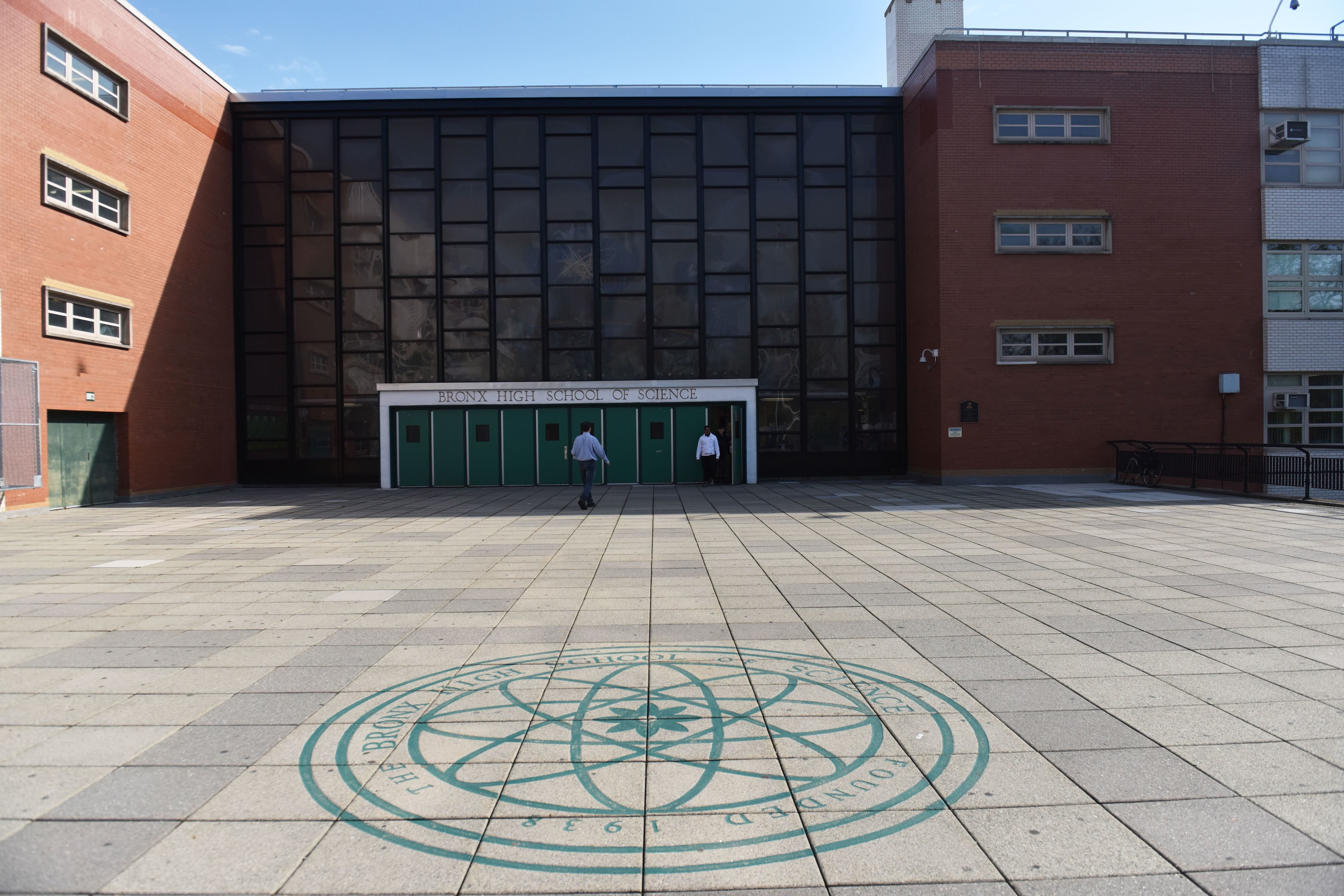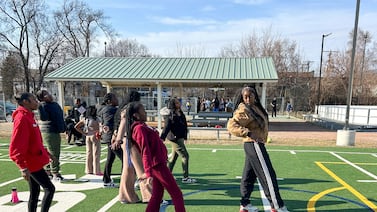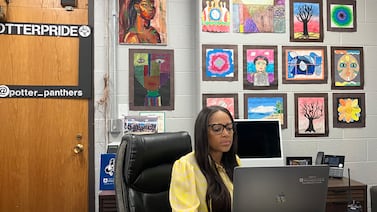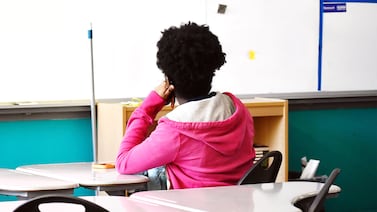Sign up for Chalkbeat New York’s free daily newsletter to keep up with NYC’s public schools.
Despite a modest increase in the number of Black and Latino students offered admission for next year’s freshman class, New York City’s vaunted specialized high schools will remain deeply segregated, according to city data released Tuesday.
Just 4.5% of offers went to Black students and 7.6% to Latino students, a slight uptick from last year when 3% of offers went to Black students and 6.7% went to Latino applicants.
Education Department officials trumpeted this year’s admissions rates for Black and Latino students as “the highest levels since 2013.” About 65% of the city’s public school students are Black or Latino.
Asian American students received about 52% of the offers, and 26% went to white students. About 32% of the city’s students are white or Asian American.
The city’s specialized high schools represent a tiny fraction of the high school population. But they garner disproportionate attention because they are considered among the country’s most prestigious public high schools, even as they contribute to New York City’s status as home to one of the most racially stratified school systems in the country. Admission to eight of the city’s specialized schools depends solely on a student’s score on a single standardized test, which has long been blamed for cementing segregation.
In line with patterns in previous years, four of the eight schools that rely on the Specialized High School Admissions Test, known as the SHSAT, admitted 10 or fewer Black students. Of the 744 students offered admission to Stuyvesant High School, 10 are Black. Just one Black applicant won a seat at Staten Island Technical High School out of 294 offers.
Overall, nearly 27,000 eighth graders took the SHSAT, and 4,072 were offered a seat.
City officials said in a press release that their “goal is that students in Specialized High Schools reflect the diversity of New York City.” But schools Chancellor David Banks has not advanced any major efforts to alter the racial makeup at the specialized high schools, nor has he made school integration a priority more broadly.
The Education Department noted that they invited students to participate in a longstanding program that offers students a chance at admission even if they just missed the test score cutoff, an effort to help diversity the specialized schools. However, that program, called Discovery, has historically done little to move the needle.
“They’re still intensely segregated schools, and it’s unacceptable that we’re allowing that to occur year, after year, after year,” said Nyah Berg, the executive director of New York Appleseed, a group that pushes for school integration. Though she acknowledged some small gains, “at the end of the day, you still have 10 Black students attending Stuysevant,” a situation she described as “egregious.”
Former Mayor Bill de Blasio sought to scrap the sole admissions test in favor of a system that would automatically admit the top-performing students at each middle school, a reform that officials projected would reshape the demographics of the specialized schools. But that proposal hinged on approval from the state legislature, which took away the city’s authority to govern the admissions process to three specialized schools in 1971.
Pushback to de Blasio’s plan was fierce. Some members of the Asian American community blasted the mayor for not including their community in developing the proposal, and it never gained traction in Albany. Subsequent efforts by some state lawmakers to reform the admissions process have also failed. Efforts to diversify the city’s specialized schools have faced court challenges while others have sued in an effort to force the system to address segregation more broadly.
The specialized schools are often seen as a springboard into top colleges and other opportunities, though studies have found that students with similar academic qualifications who attend different schools end up with similar SAT scores and college admissions offers.
New York City is unique in its share of high schools that admit students based on their academic records and city officials also released statistics Tuesday on admissions offers to screened programs outside of the specialized schools.
Overall, those campuses have not seen their demographics shift significantly since last year. But screened schools have offered admission to a higher share of Latino students and students from low-income households, compared with before the pandemic when state test scores and attendance factored into admissions. The city generally only considers a student’s grades in core subjects, though there are a few exceptions for schools that use other assessments like essays.
Across all 72,000 eighth graders who received a high school admissions offer, 51% got their first choice, up from 48% last year. About 77% received one of their top three choices, up 3 percentage points.
Alex Zimmerman is a reporter for Chalkbeat New York, covering NYC public schools. Contact Alex at azimmerman@chalkbeat.org.







